News archive 2020

Exeter researcher finalist in Blavatnik Awards
A University of Exeter researcher has won recognition in the 2020 Blavatnik Awards for Young Scientists in the UK.
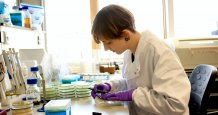
Autoimmunity may explain why an important immune system is absent in many bacteria
New findings from University of Exeter researchers reveal how bacterial immune systems can be harmful for their hosts and explain why they are not found in many bacteria.

Turtle tracking reveals key feeding grounds
Loggerhead turtles feed in the same places year after year – meaning key locations should be protected, researchers say.
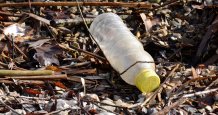
Beach clean data could boost science
Beach cleans can provide vital information on plastic pollution, researchers say.

Using the power of pop to change minds over sea turtle meat consumption
Researchers have developed a catchy way to reach communities on the island of São Tomé, in West Africa.

World-leading plastics research team collect Queen’s Anniversary prize
Prince Charles has awarded the Queen’s Anniversary Prize for Higher Education to a team at the University of Exeter.
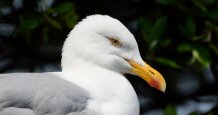
Seagulls favour food humans have handled
Seagulls favour food that has been handled by humans, new research shows.
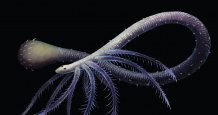
Early worm lost lower limbs for tube-dwelling lifestyle
Scientists have discovered the earliest known example of an animal evolving to lose body parts it no longer needed.
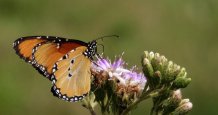
Male-killing bugs hold key to butterflies’ curious colour changes
It is a spectacular butterfly breed with an intriguing back story – now scientists have revealed how male-killing bacteria are helping to create a dazzling hybrid of the African monarch.
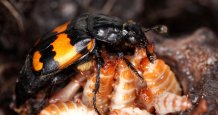
Older beetle parents ‘less flexible’
Older parents are less flexible when it comes to raising their offspring, according to a new study of beetles.
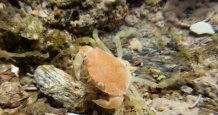
Ship noise hampers crab camouflage
Colour-changing crabs struggle to camouflage themselves when exposed to noise from ships, new research shows.

Exeter sea turtle expert on Forbes 30 Under 30 list
A University of Exeter researcher has been chosen for the Forbes “30 Under 30” list of innovators in science and heath across Europe.

Exeter genomics scientists to battle spread of coronavirus
Scientists and clinicians in Exeter are part of a £20 million investment to unlock the secrets of COVID-19.
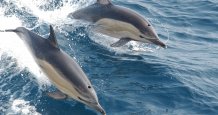
Global study shows how marine species respond as oceans warm
A global analysis of over 300 marine species spanning more than 100 years, shows that mammals, plankton, fish, plants and seabirds have been changing in abundance as our climate warms.

Exeter researchers discover a novel chemistry to protect our crops from fungal disease
Pathogenic fungi pose a huge and growing threat to global food security.
.jpg)
Litter problem at England’s protected coasts
Beaches in or near England’s Marine Protected Areas (MPAs) have the same levels of litter as those in unprotected areas, new research shows.
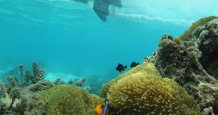
Vexing Nemo: motorboat noise makes clownfish stressed and aggressive
Hormonal changes caused by motorboat noise cause clownfish to hide, skip meals and attack their neighbours – putting damselfish in distress.
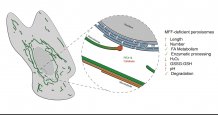
New research gives insights into how a group of novel organelle-based disorders affects cells
A pioneering study has shed new light on how a group of novel organelle-based disorders affect cells.
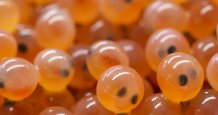
Genetics expertise could transform fish production
A recent review of research highlights how genetics can support development of sustainable aquaculture for global food security.

Exeter researchers secure prestigious national fellowships
Five leading researchers from across disciplines at the University of Exeter have received prestigious national fellowships, it has been announced.

Rising research star receives prestigious fellowship to develop “molecular movie camera”
One of the new generation of rising research stars at the University of Exeter has received a prestigious national fellowship.

Fellowship success for Biosciences researchers
Four members of Biosciences staff have been awarded prestigious national research fellowships.

Learn from past to protect oceans
History holds valuable lessons – and stark warnings – about how to manage fisheries and other ocean resources, a new study says.

Exeter scientist elected Royal Society Fellow
A leading scientist from the University of Exeter has been elected a Fellow of the Royal Society.

Otters juggle stones when hungry, research shows
Hunger is likely to be the main driver of stone juggling in otters, new research has shown.
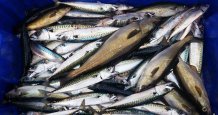
Predicting the future Fish of the Day: How well do our models work?
Understanding how the physical and biological world reacts to climate change is a challenge that science must contend with.
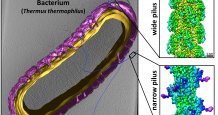
State-of-the-art imaging method provides new insights into how bacteria move and exchange genetic information
Scientists have made a pivotal breakthrough in advancing our understanding of how bacteria move and perform genetic exchange.
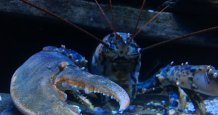
New test identifies lobster hybrids
Scientists have developed a test that can identify hybrids resulting from crossbreeding between European and American lobsters.

Solve invasive seaweed problem by turning it into biofuels and fertilisers
UK researchers have developed a cheap and simple way of creating biofuel and fertiliser from seaweed, whilst removing plastic from the oceans and cleaning up tourist beaches in the Caribbean and Central America.
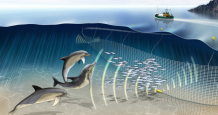
‘Pingers’ could save porpoises from fishing nets
Underwater sound devices called “pingers” could be an effective, long-term way to prevent porpoises getting caught in fishing nets with no negative behavioural effects, newly published research suggests.
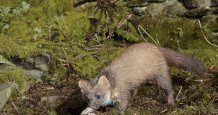
Pine martens like to have neighbours – but not too near
Pine martens need neighbours but like to keep their distance, according to new research.

Online simulation to help public understand how diseases spread
Scientists have created an online simulation to help people understand how individual actions affect the spread of diseases.
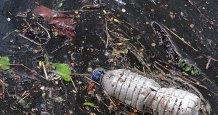
Are we underestimating microplastics in the marine environment?
A new study suggests an underestimation of microplastics in the ocean.

Sustainable plastics vital for greener world
Creating sustainable plastics is vital for the future of our environment, a new report says.

Threats to global food security from emerging fungal crop pathogens
Amongst the world's most challenging problems is the need to feed an ever-growing global population sustainably.
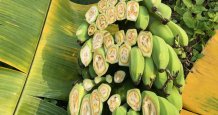
Crop pathogens ‘remarkably adaptable’
Pathogens that attack agricultural crops show remarkable adaptability to new climates and new plant hosts, new research shows.

Oldest relative of ragworms and earthworms discovered
Scientists have discovered the oldest fossil that can be assigned to the living annelid worms, the group of animals that contains earthworms, leeches and many different forms in the ocean including polychaetes (such as ragworms and lugworms).

Innovation by ancient farmers adds to biodiversity of the Amazon, study shows
Innovation by ancient farmers to improve soil fertility continues to have an impact on the biodiversity of the Amazon, a major new study shows.

Research sheds new light on the role of sea ice in controlling atmospheric carbon levels
A new study has highlighted the crucial role that sea ice across the Southern Ocean played in controlling atmospheric carbon dioxide levels during times of past climate change, and could provide a critical resource for developing future climate change models.
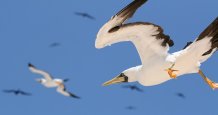
Darwin grants for Exeter research
Three marine conservation projects involving University of Exeter scientists have been awarded funding by the UK government’s Darwin Initiative.
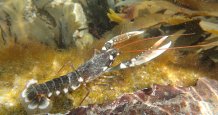
Sustainable Aquaculture Futures members win papers of the year awards at Cefas
The collaborative centre for Sustainable Aquaculture Futures (SAF) is celebrating double success in the Cefas Paper of the Year competition.

Ecosystem degradation could raise risk of pandemics
Environmental destruction may make pandemics more likely and less manageable, new research suggests.

Penryn student receives prestigious award for her work on tackling plastic waste
A University of Exeter postgraduate student has been honoured with The Diana Award - the highest accolade a young person can achieve for social action or humanitarian efforts.

Exeter in global top five for research on green space and public health
The University of Exeter has leapt into the top five institutions in the world for research output on the links between green space and public health.

Road verges could be havens for pollinators
Better-managed road verges can help boost pollinating insects, new research shows.

Exeter professor in conversation with BBC Dynasties director
A director from David Attenborough’s Dynasties series will speak to Professor Steve Simpson, of the University of Exeter, in a free online event.
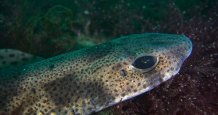
Plastics found in sea-bed sharks
Microplastics have been found in the guts of sharks that live near the seabed off the UK coast.

Mammal cells could struggle to fight space germs
The immune systems of mammals – including humans – might struggle to detect and respond to germs from other planets, new research suggests.
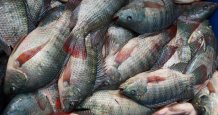
Designing a sustainable future for aquaculture, the world’s fastest growing food sector – A One Health approach
Seafood is one of the fastest-growing and highly traded food markets.

'Outstanding' Exeter staff awarded teaching fellowships
Two "outstanding" University of Exeter staff have won prestigious National Teaching Fellowships.

How fish stocks will change in warming seas
New research out today highlights the future effects of climate change on important fish stocks for south-west UK fisheries.
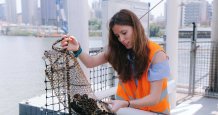
Seafood study finds plastic in all samples
A study of five different seafoods has found traces of plastic in every sample tested.

‘Critical’ questions over disease risks from ocean plastics
Key knowledge gaps exist in our understanding of how ocean microplastics transport bacteria and viruses – and whether this affects the health of humans and animals, researchers say.

Insect-based animal feed could help UK reach net zero
Insect-based feeds for farmed animals could help the UK reach its net zero carbon emissions target, researchers say.
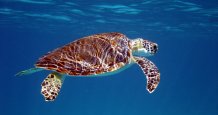
New study reveals migratory habits of teenage green turtles
Researchers and conservationists who have been tracking turtle migration for over a decade believe a new study highlights the need for investment and conservation of vital marine habitats which play a key role in turtle’s formative years.

Study sheds light on killer fungus
Scientists have identified an "Achilles heel" that could help in the fight against a killer fungus.

Researchers identify five types of cat owner
Cat owners fall into five categories in terms of their attitudes to their pets’ roaming and hunting, according to a new study.

Gulls pay attention to human eyes
Herring gulls notice where approaching humans are looking, and flee sooner when they're being watched, a new study shows.

Meningitis expert joins Exeter fungal research centre
A leading expert on infectious diseases has joined a fungal research team at the University of Exeter.

Exeter scientist becomes ASAB president
A University of Exeter scientist has been chosen as president of the Association for the Study of Animal Behaviour (ASAB).

Galapagos guides to 'barcode' wildlife
Galapagos tourist guides are being retrained to catalogue the islands' famous biodiversity.

Scientists launch key principles to preserve plant health in Scotland
Scotland’s Plant Health Centre has launched a set of five key principles, which outline important steps to protect plant resources.
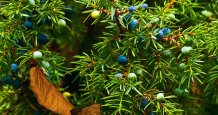
Plant diseases threaten UK whisky and gin
Fans of UK whisky and gin "need to worry about plant health", scientists say.

Nights warming faster than days across much of the planet
Global warming is affecting daytime and night-time temperatures differently – and greater night-time warming is more common than greater daytime warming worldwide – new research shows.

Project aims to reveal the fate of tyre particles in the marine environment
The new study aims to assess an until now hidden form of marine litter and show the effects it could have on our seas
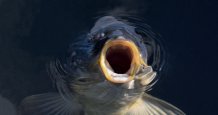
Australian carp virus plan 'dead in the water'
Plans to release a virus to reduce numbers of invasive Common Carp in Australia are unlikely to work and should be dropped, researchers say.

Prestigious medal honour for University of Exeter sensory ecology and behaviour expert
A University of Exeter expert has been awarded a prestigious medal for his cutting-edge research to explain the complexities of animal sensory systems, coloration, and behaviour.
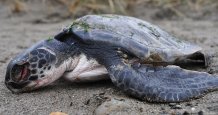
Mystery over decline in sea turtle sightings
The number of sea turtles spotted along the coasts of the UK and Ireland has declined in recent years, researchers say.

Exeter researcher wins Philip Leverhulme Prize
A University of Exeter researcher has been named among the winners of the 2020 Philip Leverhulme Prizes.
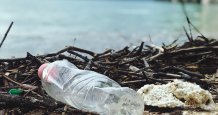
Project to investigate Southeast Asia plastic pollution
Researchers have launched an ambitious project to discover the impacts of plastic pollution in the oceans of Southeast Asia – and how the problem might be tackled.

Exeter-trained scientist honoured in Peru
A scientist trained at the University of Exeter has won Peru’s highest award for conservation.
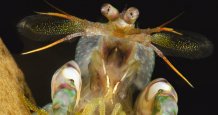
Secrets of 'smasher shrimp' property ladder revealed
Mantis shrimps carefully survey burrows before trying to evict rivals, new research shows.

Artificial night lighting has widespread impacts on nature
Artificial night-time lighting has a diverse range of effects across the natural world and should be limited where possible, researchers say.

‘Cinderella’ medicinal plant could improve breast cancer treatment
A plant which had previously been dismissed as not being medically useful could prove to be a hero in disguise, after scientists discovered it not only stops the growth of breast cancer cells but does not affect normal cells – a potential first for future cancer chemotherapy treatment.

Join expert discussion on saving the oceans
Scientists specialising in the marine environment will answer questions on ocean conservation during a free online event organised by the University of Exeter.

Slow-living animal species could be disease ‘reservoirs’
Animals that live slowly – breeding less rapidly and living longer – could be "reservoirs" of diseases that could jump to new species including humans, new research suggests.

Female mongooses start battles for chance to mate
Female banded mongooses lead their groups into fights then try to mate with enemy males in the chaos of battle, new research shows.

Animal groups consider multiple factors before fighting
Groups of animals consider multiple factors before deciding whether to fight rivals, researchers say.
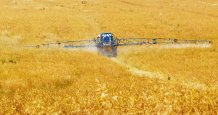
Funding boost for the next generation of environmental scientists
The University of Exeter and its partners have secured a new £3.5m Centre for Doctoral Training with funding from the Natural Environment Research Council (NERC) to research chemicals in the environment.

Puzzled otters learn from each other
Asian short-clawed otters learn from each other when solving puzzles to get food, a new study shows.

Evolution favours new diseases of 'intermediate' severity
New epidemic diseases have an evolutionary advantage if they are of "intermediate" severity, research shows.

Chemical clues in leaves can reveal ash tree resistance to deadly disease
Naturally occurring compounds in ash leaves could be linked to susceptibility of individual trees to the fungal disease ash dieback (ADB), new research shows.
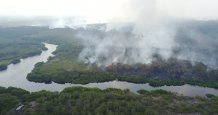
Tropical peatland conservation could protect humans from new diseases
Conservation of tropical peatlands could reduce the impacts of the COVID-19 pandemic and the likelihood of new diseases jumping from animals to humans, researchers say.

Migrating animals 'live fast and die young'
Animals that migrate "live fast and die young", new research shows.

Teaching and complex tools 'evolved together'
The human ability to teach and our use of complex tools may have evolved together, according to new research.
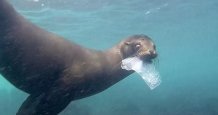
Pacific project will build a circular economy to target plastic pollution
Scientists aim to tackle plastic pollution in the Galapagos Islands and wider Eastern Pacific in a major project based on cooperation with local researchers and communities.

Exeter part of UK-wide genomics consortium in £12.2million funding boost
A £12.2 million funding boost will help scientists at the University of Exeter and the Royal Devon & Exeter NHS Trust contribute to national efforts to map how COVID-19 spreads and evolves
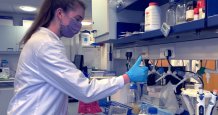
Bacteria and 3D printers could help restore coral reefs
A team of University of Exeter students are using genetically engineered bacteria to produce a material that could help repair degraded coral reefs.

Indonesian wildfires a 'fixable problem'
Indonesian wildfires that cause widespread air pollution and vast carbon emissions are a "fixable problem", according to the leader of a project set up to help tackle the issue.

Plant evolves to become less visible to humans
A plant used in traditional Chinese medicine has evolved to become less visible to humans, new research shows.
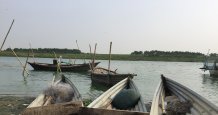
Waste fishing gear threatens Ganges wildlife
Waste fishing gear in the River Ganges poses a threat to wildlife including otters, turtles and dolphins, new research shows.
_and_marine_(bottom)_sticklebacks_feat_218x115.jpg)
Stickleback study reveals 'parallel' evolution
Animal species in different parts of the world can evolve in "parallel" in response to similar conditions, according to a new study of fish.
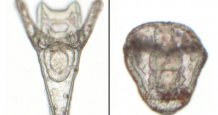
Plastic contaminants harm sea urchins
Plastics in the ocean can release chemicals that cause deformities in sea urchin larvae, new research shows.
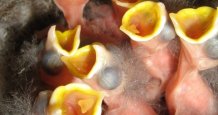
Birds able to adjust egg-laying date
Many birds are able to change their egg-laying date to cope with variable conditions, new research shows.

'Message in a bottle' tracks plastic pollution
Electronic tags released in the Ganges river show plastic pollution can travel thousands of kilometres in just a few months.

Babbler bird falls into climate change trap
Animals can fall into an "ecological trap" by altering their behaviour in the “wrong direction” in response to climate change, researchers say.
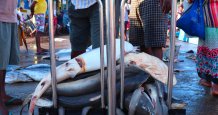
Shark fishing bans partially effective
Bans on shark fishing are only partially effective in protecting sharks, new research suggests.
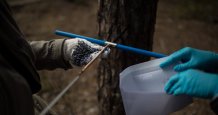
Crops near Chernobyl still contaminated
Crops grown near Chernobyl are still contaminated due to the 1986 nuclear accident, new research shows.
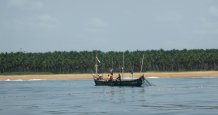
Ivory Coast creates first Marine Protected Area
Ivory Coast has announced the creation of its first Marine Protected Area (MPA).
